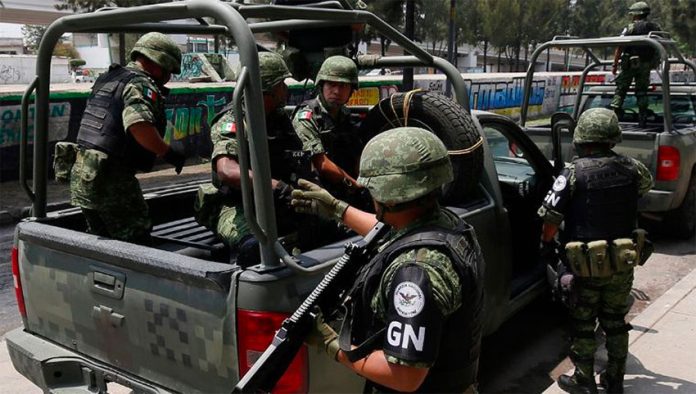Recent acts of aggression by citizens towards soldiers could have been ordered by organized crime groups, according to retired military generals.
Clashes between residents of states such as Michoacán, Guerrero and Querétaro and the Mexican army have become increasingly common in recent months.
Examples include an attack on September 7 by residents of the Queretaro municipality of San Juan del Río, who threw stones at soldiers after they arrived at a location where a train was being looted, and two incidents in Michoacán late last month in which military personnel were assailed with firearms, shovels and brooms.
According to Benito Medina Herrera, a former army general who is now a federal lawmaker for the Institutional Revolutionary Party, it is possible that at least some of the acts of aggression towards soldiers were ordered by criminal groups.
He said that in some parts of the country, gangs order women and children to confront the army when their interests are threatened because they know that soldiers won’t retaliate against them.
“. . . They take advantage of those circumstances in order to be able to confront the armed forces . . .” Medina said.
“In other places, I believe there are families . . . that are involved in organized crime or crime in general and they go out to defend [their interests] . . .” he added.
José Francisco Gallardo, a retired general who is now a professor at the National Autonomous University, agreed with Medina that citizens’ aggression towards soldiers could be linked to organized crime.
He described attacks on the army as “demeaning” for soldiers and charged that they don’t have sufficient training to deal with them.
Gallardo also said that there is a lot of discontent among soldiers because they are forced to carry out public security tasks. He claimed that there have been almost 1,000 desertions since the new government took office in December.
While Federal Police are unhappy about being transferred into the National Guard, soldiers are angry about having to do the work of a policeman, Gallardo said.
Source: El Economista (sp)
